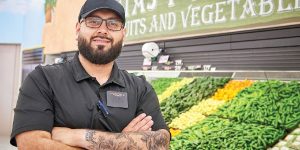In an increasingly digital world, access to technology and reliable information sources has become essential for community participation, economic opportunity, and civic engagement. For Kansas City’s vibrant Hispanic community, organizations like Dos Mundos Bilingual Newspaper are playing a crucial role in bridging the digital divide while keeping residents informed and connected.
The Power of Bilingual News in Digital Inclusion
Dos Mundos, which has been “divulgando la cultura en dos idiomas” (spreading culture in two languages) for over four decades, represents more than just a newspaper; it’s a vital digital bridge for Kansas City’s Spanish-speaking residents. With both print and online editions, Dos Mundos ensures that important community news, resources, and opportunities reach every family, regardless of language barriers.
The newspaper’s recent coverage highlights the diverse needs of the Hispanic community, from housing developments like the Villa View Apartments opened by Guadalupe Centers Inc., to local business spotlights like Laura’s CakePop Shop, to important civic issues like the Southwest Boulevard improvements and World Cup 2026 preparations.
Breaking Down Digital Barriers
The digital divide in Kansas City’s Hispanic community is influenced by several interconnected challenges:
Language Access: Many online resources remain available only in English, making navigation difficult for Spanish-speaking residents. Bilingual platforms like Dos Mundos bridge this gap by providing news and information in both languages.
Economic Barriers: High-speed internet and updated devices can strain family budgets. However, programs like the FCC’s Affordable Connectivity Program (ACP) and local device donation initiatives are helping make technology more accessible.
Digital Literacy: Understanding how to navigate online platforms for education, healthcare, and employment requires training and support. Kansas City’s public libraries and community centers are stepping up with bilingual tech classes and workshops.
Community-Driven Solutions
The success of digital inclusion efforts in Kansas City stems from community-driven initiatives that understand local needs:
Educational Support
Public libraries offer computer access, free Wi-Fi, and bilingual tech classes, while organizations like Mattie Rhodes Center provide comprehensive community programs including arts education and digital literacy training.
Business Development
Hispanic entrepreneurs rely on digital platforms to grow their businesses, with bilingual newspapers featuring business headlines and opportunities. Local programs offer digital marketing workshops to help small businesses adapt to e-commerce and online advertising.
Healthcare Access
Telehealth platforms with bilingual interfaces are making healthcare more accessible, allowing families to access medical records, book appointments, and receive reminders in Spanish.
Civic Engagement Through Information
Recent coverage by Dos Mundos demonstrates how local news keeps the Hispanic community engaged in civic life. From covering local political candidates like Alma Hall seeking UG commissioner position, to reporting on community protests and public safety issues, bilingual news sources ensure that Spanish-speaking residents can participate fully in democratic processes.
The newspaper’s coverage of the “NO ICE” protest in Overland Park, stretching from 80th to 103rd on Metcalf Avenue, exemplifies how local bilingual media documents and validates community concerns while keeping residents informed about important civic actions.
Looking Forward: World Cup 2026 and Beyond
As Kansas City prepares to host World Cup 2026 matches, the city’s commitment to digital inclusion becomes even more critical. The Hispanic community’s participation in this global event as business owners, service providers, and cultural ambassadors depends on having equal access to digital resources and information.
Mario Vasquez, Kansas City’s city manager, faces the challenge of ensuring that major events like the World Cup benefit all residents. This includes making sure that digital infrastructure improvements and economic opportunities reach Hispanic families and businesses.
Resources for Digital Access
For Hispanic families seeking to bridge the digital divide in Kansas City:
Affordable Internet: Apply for the Affordable Connectivity Program (ACP) or explore low-cost internet packages from local providers with bilingual customer service.
Digital Skills Training: Contact Kansas City Public Library or Hispanic community organizations for free computer and internet classes in Spanish.
Device Access: Look into local nonprofit device donation programs that provide refurbished laptops and tablets to families in need.
Bilingual News: Stay informed through Dos Mundos online editions and other bilingual newspapers that cover local news, business opportunities, and community resources.
The Path Forward
Bridging the digital divide requires more than just internet access it demands bilingual education, accessible news sources, affordable technology, and community-driven programs. Publications like Dos Mundos serve as essential connectors, ensuring that digital inclusion efforts reach every corner of Kansas City’s Hispanic community.
As the city continues to grow and evolve, the partnership between bilingual media, community organizations, and public institutions will remain crucial for ensuring that technological advancement benefits everyone. Through continued collaboration and culturally responsive programming, Kansas City can serve as a model for digital inclusion that truly leaves no one behind.
The success stories emerging from Kansas City’s Hispanic community from thriving small businesses to engaged civic participation demonstrate that when language barriers are removed and digital access is democratized, entire communities flourish. In this digital age, organizations like Dos Mundos aren’t just reporting the news they’re helping write the story of an inclusive, connected Kansas City.
Frequently Asked Questions (FAQ)
1. Where can I find Spanish newspapers in Kansas City?
You can access Dos Mundos Bilingual Newspaper online at their website or find physical copies at Hispanic community centers throughout Kansas City. Dos Mundos has been serving the community for over 45 years, providing news in both Spanish and English.
2. Does Dos Mundos offer digital editions?
Yes, Dos Mundos publishes online editions alongside their print newspaper. You can access current and past issues digitally, making it easy to stay informed on mobile devices, tablets, or computers.
3. Are there free computer classes in Spanish in Kansas City?
Yes, Kansas City Public Library and various Hispanic community organizations offer bilingual computer and digital literacy classes. Contact your local library branch or community centers like Mattie Rhodes Center for schedules and registration.
4. How can Hispanic families get affordable internet access?
Families can apply for the FCC’s Affordable Connectivity Program (ACP) which offers discounted internet services. Many Kansas City internet providers also offer low-cost plans with bilingual customer support for setup and service.
5. What types of news does Dos Mundos cover?
Dos Mundos covers local Kansas City news, community events, business spotlights, sports (including Sporting KC), immigration updates, entertainment, travel, and editorials. Recent coverage includes Southwest Boulevard improvements, World Cup 2026 preparations, and local housing developments.
6. How can I submit news or events to Dos Mundos?
You can contact Dos Mundos at their office located at 1701 South 55th St., Kansas City KS 66106, call (816) 221-4747, or follow them on Facebook, Twitter, and YouTube to submit news tips and community events.
7. Why are bilingual newspapers important for digital inclusion?
Bilingual newspapers like Dos Mundos ensure Spanish-speaking residents stay informed about digital resources, community programs, and opportunities in their preferred language. They bridge the information gap and help families access technology programs and services.










